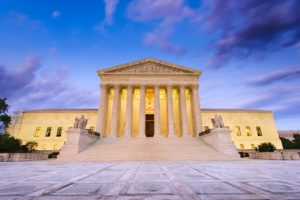 Richard B. Finnegan
Richard B. FinneganProfessor Emeritus
Political Science/International Studies, Stonehill College
Three Classes
1:30 – 3:00
November 3, 10, 17
The US Supreme Court has been divided between two ideas of judicial interpretation; originalism and liberal interpretation. Each one has a logical integrity but comes to substantially different conclusions when applied to specific cases. We’ll explore both views, the way they have evolved and how they have now come to a real confrontation over the 14th amendment. We’ll then turn our focus to an analysis of the outcome of the 2022 midterms as that will provide a pattern for the 2024 elections.
This class was designed especially for Lifetime Learning in order to look at the current Supreme Court and the upcoming elections.
Speaker bio:
• Richard Finnegan is Professor Emeritus of Political Science and International Studies
• He holds an AB from Stonehill College, Masters degrees from Boston College and Harvard, and a PhD from Florida State University
• He has been a Visiting Professor at Boston University, Masaryk University, and Harvard University
• He has been a visiting research scholar at University College Dublin, University of Galway, Catholic University of Leuven, and Harvard University
• He has been awarded various grants to study at the United States Military Academy, University of Connecticut, University of Massachusetts, University of Virginia, UCLA, and Yale University
• He has been awarded three Fulbright awards, a Fulbright Specialist, a group faculty award to China, and a Distinguished Fulbright Professor at Masaryk University in the Czech Republic
• He is the author of numerous articles and book chapters and the author or editor of six books on Twentieth century Ireland
• He has served on the Boards of the Irish Cultural Centre of New England, The Irish Charitable
Society of Boston, and has been the President of the Eire Society of Boston
• Upon his retirement, Stonehill College created the Distinguished Richard B. Finnegan Professorship in Political Science and International Studies